Solar Modules
-


Anker
Long-Lasting Portable Power Station With a 10-Year Lifespan: With our proprietary long-lasting technology InfiniPower™, combined with LiFePO4 batteries, ultra-durable electronic components, a smart temperature control system that... -

Anker
6× Longer-Lasting: Rated to provide 3,000 battery cycles with premium LPF (LiFePO4) batteries and extends the battery lifespan by 6× more than the standard lithium-iron batteries, so you're always ready for any adventure... -
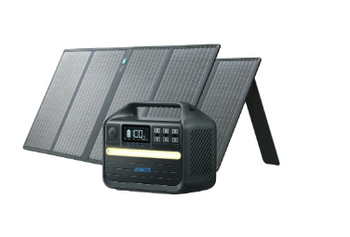
Anker
6× Longer Lifespan: Premium LPF (LiFePO4) batteries extend the lifespan by 6× more than standard lithium-ion batteries, so you'll always have plenty of power to conquer any outdoor adventure. Unprecedented 10-Year Lifespan: Instead of 2... -


Anker
Our solar generators are available on a first come, first served basis. Long-Lasting Portable Power Station with a 10-Year Lifespan: With our proprietary long-lasting technology InfiniPower™, combined with LiFePO4 batteries, ultra-durable... -

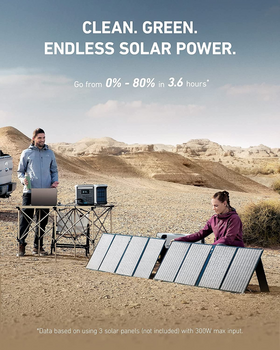
Anker
Long-Lasting Portable Power Station With a 10-Year Lifespan: With our proprietary long-lasting technology InfiniPower™, combined with LiFePO4 batteries, ultra-durable electronic components, a smart temperature control system that monitors... -
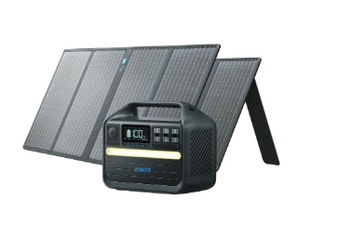
Anker
Long-Lasting Portable Power Station With a 10-Year Lifespan: With our proprietary long-lasting technology InfiniPower™, combined with LiFePO4 batteries, ultra-durable electronic components, a smart temperature control system that monitors... -


Anker
$499.003-Mode Angle Adjustments: Seamlessly adjust 531 Solar Panel to 40°, 50°, or 60° via the adjustable kickstand for optimal solar power. IP67 Waterproof: The solar panel's IP67 waterproof protection allows it to withstand...$499.00 -


Anker
$299.00High Conversion Efficiency: The solar panel converts up to 23% of sunlight into solar energy, charging your solar generators even on cloudy days. Smart Sunlight Alignment: Equipped with Anker's proprietary Suncast technology,...$299.00 -

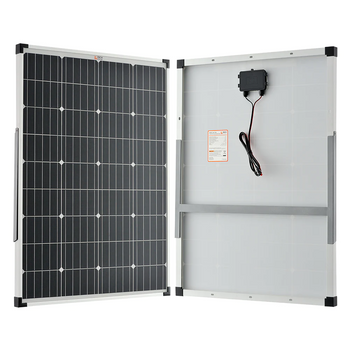
Rich Solar
MSRP: $144.99$119.99FEATURES High efficiency 100-watt mono-crystalline solar panelKickstand for better angle placementCorner protectionStrong tempered glass and aluminum frameFully weatherproof5' wire with built-in connectors IDEAL FOR Solar generatorsPortable power...MSRP: $144.99$119.99 -

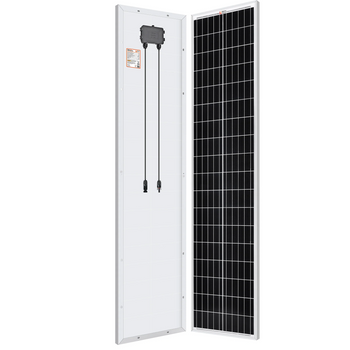
Rich Solar
MSRP: $129.99$108.9912V off-grid solar panel. 0~+5W guaranteed positive power output. IP 65 or IP 67 rated. Built with strong tempered glass and aluminum frame. Certified to withstand challenging environmental conditions. Excellent low light performance...MSRP: $129.99$108.99 -


Rich Solar
MSRP: $169.99$139.99Features 5 buss bar solar cell configuration Lightweight anodized aluminum frame High Transmission, AR (anti-reflective) Coated Tempered Glass Plug and play junction box Industry standard quick connect cables work in series or in...MSRP: $169.99$139.99 -

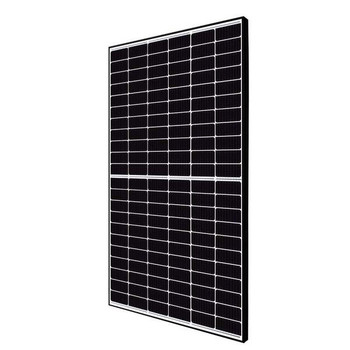
Canadian Solar
Canadian Solar CS3N-390MS, PV Modules, 390W, Black Frame/Black Backsheet, MC4 Canadian CS3N-MS ModulesCanadian Solar's new High Power Dual Cell Mono-PERC Module, with shade tolerant half cell technology and an additional row of cells, breaks the 20%...
Solar power modules are devices that convert sunlight into electricity using photovoltaic cells. There are different types of solar power modules available, each with its own characteristics and advantages.
Monocrystalline solar power modules are made from a single, high-purity crystal of silicon, which makes them highly efficient at converting sunlight into electricity. They are also durable and have a long lifespan. Monocrystalline solar panels are usually more expensive than other types of solar panels, but their efficiency can make them a good investment in the long run.
Flexible solar power modules are made from thin, lightweight materials that can be bent or curved to fit a variety of surfaces. This makes them ideal for applications where rigid solar panels are not suitable, such as on boats, RVs, or for portable charging solutions. Flexible solar panels are less efficient than monocrystalline solar panels, but they are more affordable and versatile.
CIGS (copper indium gallium selenide) solar power modules are a newer type of solar panel that are made from thin film cells. They are more efficient than flexible solar panels, but less efficient than monocrystalline solar panels. CIGS solar panels are also more affordable than monocrystalline panels and are easier to manufacture, making them a popular choice for large-scale solar power projects.
All types of solar power modules work by absorbing sunlight and converting it into direct current (DC) electricity. This electricity is then converted into alternating current (AC) using an inverter, which can be used to power electrical devices or sent to the grid for use by others. Solar power modules are a clean, renewable source of energy that can be used to power homes, businesses, and other applications, reducing dependence on non-renewable sources of energy and helping to reduce carbon emissions.
Frequently Asked Questions About Solar Modules
A: A solar module, also known as a solar panel, is an electronic device made up of photovoltaic cells that convert sunlight into electricity.
A: Solar modules convert sunlight into direct current (DC) electricity through the photovoltaic effect. The solar cells in the module absorb photons from the sun's rays and knock electrons off their atoms, creating a flow of electricity.
A: A solar module is typically made up of a series of interconnected photovoltaic cells, a protective backsheet, a front glass cover, a frame, and wiring.
A: The most common types of solar modules are monocrystalline, polycrystalline, and thin-film. Monocrystalline modules are made from a single crystal of silicon and are the most efficient. Polycrystalline modules are made from multiple silicon crystals and are slightly less efficient. Thin-film modules are made from a variety of materials and are the least efficient but also the most flexible.
A: The lifespan of a solar module varies depending on the quality of the module and its maintenance, but most solar modules are designed to last for 25-30 years or more.
A: The performance of a solar module is affected by several factors, including the angle and orientation of the module, the amount of sunlight it receives, the temperature, and any shading that may occur.
A: The amount of electricity a solar module can produce depends on its size and efficiency, as well as the amount of sunlight it receives. A typical residential solar module can produce between 250 and 400 watts of electricity during peak solar hours.
A: Solar modules can be used in a wide range of weather conditions, including cloudy days. However, their performance may be affected by extreme temperatures, heavy rain or snow, and high winds.
A: Many countries offer incentives for installing solar modules, such as tax credits, rebates, and net metering programs that allow homeowners to sell excess energy back to the grid.
